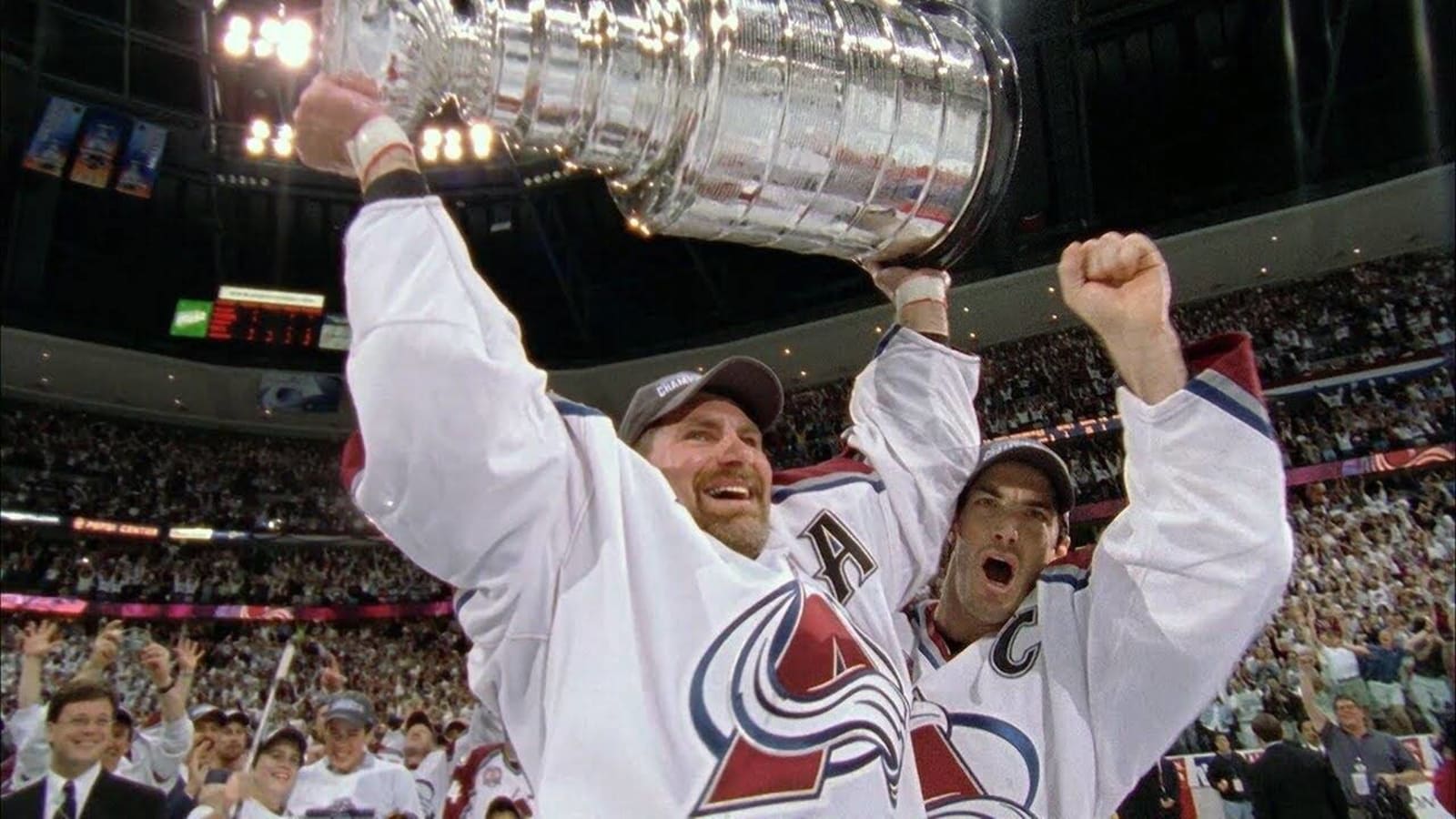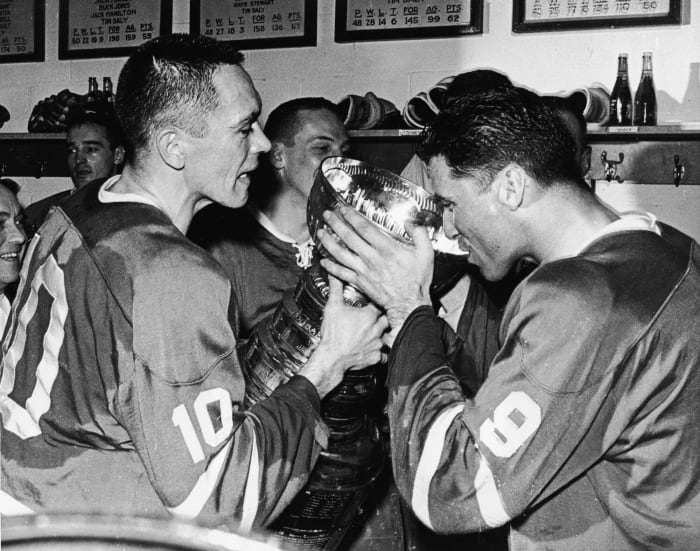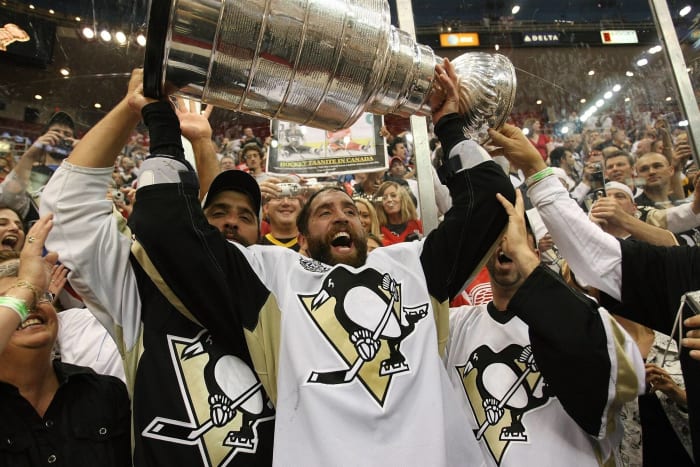- Home
- Quizzes
- My Quiz Activity
- Newsletters
- Sports Betting
- MY FAVORITES
- Add Sports/Teams
- SPORTS
-
NFL
- NFL Home
- Arizona Cardinals
- Atlanta Falcons
- Baltimore Ravens
- Buffalo Bills
- Carolina Panthers
- Chicago Bears
- Cincinnati Bengals
- Cleveland Browns
- Dallas Cowboys
- Denver Broncos
- Detroit Lions
- Green Bay Packers
- Houston Texans
- Indianapolis Colts
- Jacksonville Jaguars
- Kansas City Chiefs
- Las Vegas Raiders
- Los Angeles Chargers
- Los Angeles Rams
- Miami Dolphins
- Minnesota Vikings
- New England Patriots
- New Orleans Saints
- New York Jets
- New York Giants
- Philadelphia Eagles
- Pittsburgh Steelers
- San Francisco 49ers
- Seattle Seahawks
- Tampa Bay Buccaneers
- Tennessee Titans
- Washington Commanders
-
MLB
- MLB Home
- Arizona Diamondbacks
- Atlanta Braves
- Baltimore Orioles
- Boston Red Sox
- Chicago White Sox
- Chicago Cubs
- Cincinnati Reds
- Cleveland Guardians
- Colorado Rockies
- Detroit Tigers
- Houston Astros
- Kansas City Royals
- Los Angeles Angels
- Los Angeles Dodgers
- Miami Marlins
- Milwaukee Brewers
- Minnesota Twins
- New York Yankees
- New York Mets
- Oakland Athletics
- Philadelphia Phillies
- Pittsburgh Pirates
- San Diego Padres
- San Francisco Giants
- Seattle Mariners
- St. Louis Cardinals
- Tampa Bay Rays
- Texas Rangers
- Toronto Blue Jays
- Washington Nationals
-
NBA
- NBA Home
- Atlanta Hawks
- Boston Celtics
- Brooklyn Nets
- Charlotte Hornets
- Chicago Bulls
- Cleveland Cavaliers
- Dallas Mavericks
- Denver Nuggets
- Detroit Pistons
- Golden State Warriors
- Houston Rockets
- Indiana Pacers
- Los Angeles Clippers
- Los Angeles Lakers
- Memphis Grizzlies
- Miami Heat
- Milwaukee Bucks
- Minnesota Timberwolves
- New Orleans Pelicans
- New York Knicks
- Oklahoma City Thunder
- Orlando Magic
- Philadelphia 76ers
- Phoenix Suns
- Portland Trail Blazers
- Sacramento Kings
- San Antonio Spurs
- Toronto Raptors
- Utah Jazz
- Washington Wizards
-
NHL
- NHL Home
- Anaheim Ducks
- Arizona Coyotes
- Boston Bruins
- Buffalo Sabres
- Calgary Flames
- Carolina Hurricanes
- Chicago Blackhawks
- Colorado Avalanche
- Columbus Blue Jackets
- Dallas Stars
- Detroit Red Wings
- Edmonton Oilers
- Florida Panthers
- Los Angeles Kings
- Minnesota Wild
- Montreal Canadiens
- Nashville Predators
- New Jersey Devils
- New York Islanders
- New York Rangers
- Ottawa Senators
- Philadelphia Flyers
- Pittsburgh Penguins
- San Jose Sharks
- Seattle Kraken
- St. Louis Blues
- Tampa Bay Lightning
- Toronto Maple Leafs
- Vancouver Canucks
- Vegas Golden Knights
- Washington Capitals
- Winnipeg Jets
- NCAAF
- NCAAM
- Boxing
- Entertainment
- Lifestyle
- Golf
- MMA
- Soccer
- Tennis
- Wrestling
- More Sports
- RESOURCES
- My Account
- YB on Facebook
- YB on Twitter
- YB on Flipboard
- Contact Us
- Privacy Policy
- Terms of Service

The most memorable Game 7s in Stanley Cup Final history
There have been 17 Game 7s in the storied history of the Stanley Cup Final. While some haven't lived up to the winner-takes-all hype, others are truly unforgettable to NHL fans.
Here's our ranking of those Stanley Cup Game 7s.
17. 1964: Toronto 4, Detroit 0

Get used to hearing about the Maple Leafs and Red Wings on this list. In '64, it marked the second consecutive meeting between the Original Six rivals in the Stanley Cup Final. In 1963, Toronto needed just five games to beat Detroit to win its second straight Cup, but things were different this time around. The Maple Leafs got down 3-2 in the series, then won an overtime, 4-3 thriller in Game 6 at Detroit. Back home for Game 7, it was all Toronto. Four different Leafs scored, and Johnny Bower stopped all 33 shots he faced for the shutout in the 4-0 triumph to keep the dynasty alive.
16. 1965: Montreal 4, Chicago 0

The noted Maple Leafs' run of Stanley Cup success ended in 1965, and the archrival Canadiens took them out in six games of the semifinal series. Once it was time for the Cup Final, the entertainment value was quite high. The home team won every game, and Montreal allowed just two goals in four games on home ice and none in the last three there. Habs netminder Gump Worsley was in net for two of those home shutouts. He stopped all 20 shots faced in this Game 7 victory, where teammates Dıck Duff had a goal with two assists, Jean Beliveau, winner of the first Conn Smythe Trophy as playoff MVP, added one of each, and Bobby Rousseau notched three assists.
15. 1955: Detroit 3, Montreal 1

The Canadiens were amid a remarkable stretch of 10 consecutive Stanley Cup Final appearances (1951-'60). During that run, they faced the mighty Red Wings four times, including three straight years from 1954-'56. Detroit, though, got the better of those matchups, notably in 1955. The home team again won every game in the series, and a Gordie Howe score sandwiched by Alex Delvecchio's goals pushed Detroit to a 3-0 Game 7 lead that Montreal could not overcome. This would be the Red Wings' final Cup championship until they swept Philadelphia in the 1997 series.
14. 2011: Boston 4, Vancouver 0

Vancouver was the NHL's top team in 2010-11, and posted a pair of one-goal victories on home ice to take a 2-0 Cup Final lead over the Bruins. However, when the series shifted to Boston, the Bruins outscored the Canucks 12-1 in Games 3 and 4 to tie things. The series eventually went to a seventh game, and after losing the previous three at Vancouver, Boston finally got it down on the road. Brad Marchand totaled a goal with an assist, Patrice Bergeron scored twice, and Tim Thomas was brilliant in stopping all 37 shots. A memorable effort to help the Bruins snap their 39-year Stanley Cup drought.
13. 1987: Edmonton 3, Philadelphia 1

Smack dab in the middle of the Oilers' dynasty of five Stanley Cup triumphs in seven seasons. The 1987 Final once again featured the regular season's two best teams. Edmonton jumped out to a 3-1 series lead and appeared to be on cruise control to its third Cup. However, the Flyers won two one-goal games, including at Edmonton in Game 5. Philadelphia even jumped out to 1-0 lead, 1:41 into Game 7 on Murray Craven's power-play tally. However, Mark Messier tied it minutes later, then Oilers added a goal in the second and third periods to begin their run of three straight Stanley Cup titles.
12. 2019: St. Louis 4, Boston 1

In the rematch of the famed 1970 Stanley Cup Final (which featured Bobby Orr's flying goal), Boston was again the favorite. However, the Blues were hot, and riding rookie netminder Jordan Binnington. And, he certainly shined when it mattered most with the Blues' long-awaited first Stanley Cup on the line. St. Louis scored twice in the first period of Game 7, despite just four shots on goal. Meanwhile, Boston totaled 23 through the first two periods, but Binnington was up to the task. Brayden Schenn and Zach Sanford scored for the Blues in the third to essentially seal the deal. Now, Binnington did not get his shutout but made 32 saves for one of the great individual Game 7 moments in NHL history.
11. 2006: Carolina 3, Edmonton 1

The first Stanley Cup triumph in the history of the Whalers/Hurricanes franchise wasn't easy for the fan base to handle. The Hurricanes blew a 3-1 series lead, but it was a good thing Game 7 was on their home ice. An Aaron Ward goal in the first period, and Frantisek Kaberle's score in the second, gave the hosts a 2-0 lead. However, early in the third, Edmonton got within one with Fernando Pisani's 14th goal of the postseason. But, star rookie and Conn Smythe Trophy winner Cam Ward was up to the task in net, keeping the Oilers scoreless the rest of the way to help the Hurricanes lift the Cup.
10. 2003: New Jersey 3, Anaheim 0

Two seasons removed from a Game 7 Stanley Cup Final loss, New Jersey dominated this Game 7. However, there was a certain element of historical significance to the triumph. The Devils had become an established power, while Anaheim was making its third playoff appearance since the franchise debuted in 1993-94. Yet, the Ducks pushed this series to the limit. Keeping with the series trend, though, the home team won every game, as a pair of goals from Jeff Friesen, 24 saves from Martin Brodeur to post his third shutout of the series, and an overall stellar defensive performance from the Devils led to their third Cup in nine seasons.
9. 1994: New York Rangers 3, Vancouver 2

In the storied history of Madison Square Garden, the atmosphere in the beloved building on June 14, 1994, might not have been more electric. Of course, the collective nervousness from Rangers' fans was off the charts, as well. However, New York led 2-0 after one period and 3-1 entering the third, thanks to Mark Messier's second-period power-play goal. But Trevor Linden's own power-play score early in the third period made it a one-goal contest, leaving the MSG faithful on edge. Vancouver had ample scoring chances going forward, and Martin Gelinas and Nathan LaFayette each hit iron down the stretch. However, the Rangers held on to end their drought for what's become one of the most memorable sports moments of all time.
8. 2001: Colorado 3, New Jersey 1

The Devils were looking to repeat as Stanley Cup champions, but the Avalanche were the Presidents' Trophy winners. Talk about a marquee Stanley Cup-Final matchup. So, it made sense the top two seeds in the Stanley Cup playoffs would need a deciding Game 7. Ultimately, Colorado, the league's best team all season, got the job done. Alex Tanguay scored the game's first two goals and assisted on Joe Sakic's second-period score to put the hosts up 3-0. This moment is also remembered for longtime Boston Bruin and current Avs defenseman Ray Bourque hoisting the Cup for the only time in his 22nd and final NHL season.
7. 2009: Pittsburgh 2, Detroit 1

Detroit wanted to win back-to-back Stanley Cups by beating the Penguins for a second consecutive season. However, after the Red Wings won the first two games of the Final -- at home -- the rest belonged to Pittsburgh. Not only did Detroit fail to win any of the three at Pittsburgh, it couldn't even use home ice in this Game 7 to its advantage. And it wasn't Pittsburgh stars Sidney Crosby and Evgeni Malkin who did the damage in the finale. Instead, low-liner Max Talbot continued his strong postseason with second-period goals that gave the Penguins a 2-0 lead. Detroit got one back through Jonathan Ericsson in the third, but despite only one shot on goal in the final period, the Penguins held on to cap a stunning series comeback.
6. 2004: Tampa Bay 2, Calgary 1

The Lightning's greatest moment of glory in winning the then-still-fledging franchise's first Stanley Cup concluded with one of the tensest Game 7's in NHL history. Ruslan Fedotenko scored in each of the first two periods to give the Lightning a 2-0 lead. However, the drama was excited when Calgary's Craig Conroy scored roughly midway through the third, and things got even more chaotic as the Flames pressured Nikolai Khabibulin the rest of the way. However, Tampa Bay survived a game that featured just 32 total shots on goal, to raise the Cup as the southern-most NHL club to win it all at time.
5. 1942: Toronto 3, Detroit 1

It was fitting that Toronto capped its historic comeback from 3-0 down in the 1942 Stanley Cup by again coming from behind to win Game 7. Though Toronto was playing at home and armed with plenty of momentum after winning three straight games to tie the series, Detroit struck first with Syd Howe's goal early in the second period. However, the third period belonged to the Maple Leafs. Goals by Sweeney Schriner sandwiched Pete Langelle's score, and Toronto raised the Cup for the first time in a decade.
4. 1971: Montreal 3, Chicago 2

Before Game 7 of this 1971 series, the home team won each of the previous six. However, that was about to change as Montreal seemed primed to win its fifth Stanley Cup in seven seasons. However, the Blackhawks opened the scoring on Dennis Hull's goal late in the first. Chicago made it 2-0 through Danny O'Shea at the 7:33 mark of the middle frame. But Montreal countered with goals from Jacques Lemaire and NHL legend Henri Richard late in the second. Then, Richard struck again with the eventual game-winner just 2:34 into the third, and the Canadiens' dominance continued.
3. 1945: Toronto 2, Detroit 1

As noted, it was three years earlier when the Maple Leafs overcame a 3-0 hole to stun the Red Wings in the Stanley Cup Final. Well, Toronto almost returned the favor in '45. The Leafs recorded three straight shutouts to open a 3-0 lead in this series, but Detroit regrouped, found some offense, and posted two shutouts itself to win the next three. However, the Maple Leafs were able to stop the bleeding in Game 7 at Detroit. Though, it wasn't easy. Detroit's Murray Armstrong tied the game with a goal 8:16 into the third period, but Babe Pratt came through for the Leafs with a little less than eight minutes to play in regulation, and the visitors held on to win their fifth Cup.
2. 1954: Detroit 2, Montreal 1 (OT)

Fun fact for the casual hockey fan, Detroit is the only team in NHL history to win the only two Stanley Cup Final series that went to an overtime Game 7. Let's start with 1954. Montreal opened the scoring near the midway point of the first period through Floyd Curry. Detroit then leveled things on Red Kelly's goal early in the second. The game eventually went to overtime, where just 4:29 into the extra session, Tony Leswick's shot deflected off the glove of Canadiens defenseman Doug Harvey and in for the winner. Disgruntled Montreal players skated off the ice in a memorable moment without taking part in the traditional post-series handshake.
1. 1950: Detroit 4, New York Rangers 3 (2OT)

One overtime wasn't enough to decide the winner of the 1950 Cup Final. Now, it can be argued that the entire series, which featured the Rangers playing two "home" games in Toronto, and two other contests that went to overtime, is the best in NHL history. So, this finale should long been considered the greatest Stanley Cup Final game ever played. New York led 2-0 after one period, but three second-period goals from the Red Wings left the game tied 3-3 after two, and ultimately at the end of regulation and the first overtime. Finally, at 8:31 into the second extra session, Pete Babando's second goal of the game -- and the playoffs -- provided one of the most memorable moments in Red Wings' history.
A Chicago native, Jeff Mezydlo has professionally written about sports, entertainment and pop culture for nearly 30 years. If he could do it again, he'd attend Degrassi Junior High, Ampipe High and Grand Lakes University.
More must-reads:
- Three reasons Oilers will eliminate Canucks in the second round
- NHL announces 2024 Hart Trophy finalists
- The 'Leading scorers from the 1992-93 NBA season' quiz
Breaking News
Customize Your Newsletter
 +
+
Get the latest news and rumors, customized to your favorite sports and teams. Emailed daily. Always free!
Use of this website (including any and all parts and
components) constitutes your acceptance of these
Terms of Service and Privacy Policy.
 On Facebook
On Facebook On Flipboard
On Flipboard On Twitter
On Twitter
